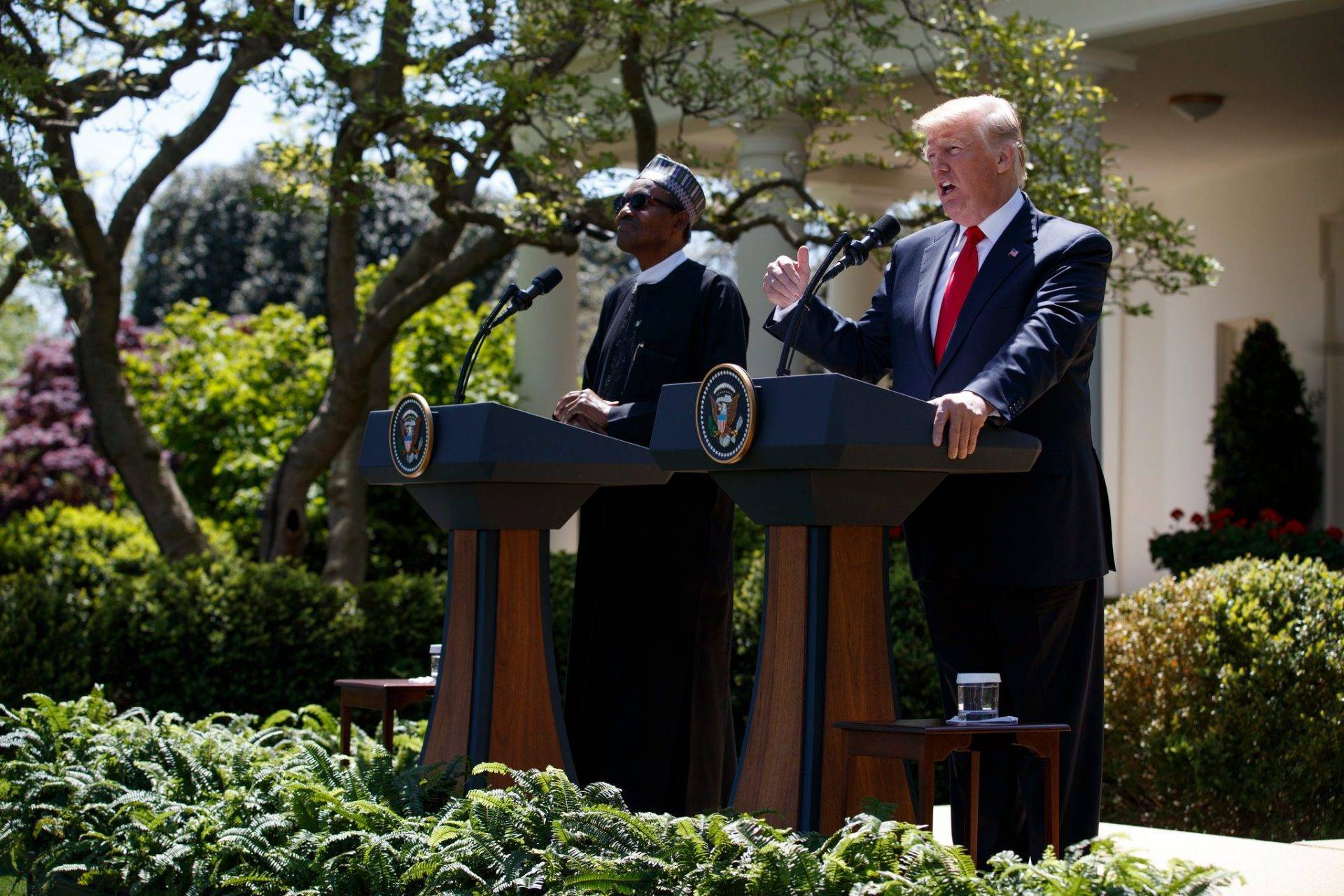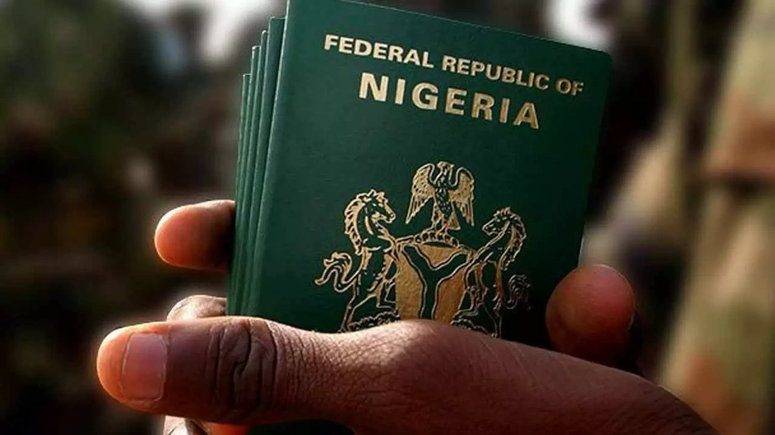How Trump’s Travel Ban Will Fare In The Boxing Ring With Some Major Belts Of Nigeria’s Economy

By now, it’s no longer news that the Trump’s travel ban list has added Nigeria, among other four African countries. Among the total six affected, Nigeria is the most controversial, being the continent’s largest economy.
The most populous nation in Africa, the developing country is the region’s largest tech ecosystem. If not reversed, the possible adverse effects of the restriction could be in folds.
Traveling to the U.S before now was no walk in the park, thanks to the weakness of the Nigerian passport and aired security reasons. The limbo is already on a whole new degree of worse.
On the other hand, it is pretty much established that both countries stand to incur some negative economic impacts. However, the injunction may not all not spell all bad news in different contexts.
Impact On FDI
One of the major concerns Trump’s travel ban stirs is attached to the economic ties between both countries. The largest economy in Africa in trade dealings with the largest economy in North America appears to be a match made in heaven.
But the immigration ban is obviously a threat to future transactions back and forth. Among China, the U.K, France, the Netherlands and Japan, the United States is one of the main investing countries in Nigeria.
As of the end of 2019, the country had expressed interest in negotiating a bilateral investment treaty with America. It may look as though the travel ban would threaten foreign direct investments to the West African nation, but that’s hardly the case.
Andrew Nevin, Chief Economist at PwC (PricewaterhouseCoopers) Nigeria, disagrees that the ban would strike at Nigeria’s FDI because there are already teething challenges on that front.
“Nigeria is already having significant problems attracting FDI and the ban is unlikely to make much difference. Nigeria can only fix the issue with structural and governance changes that will encourage FDI to increase,” he told WeeTracker.
According to the 2019 UNCTAD World Investment Report, Nigeria is the third host economy for FDI in Africa, behind Egypt and Ethiopia. According to the report, FDI flows to the country amounted to USD 1.9 Bn in 2018. But that was a bottom dive compared to the USD 3.5 Bn recorded the previous year.
While Nigeria has been attracting strong flows from American companies such as Uber, Facebook, Emergent Payments, and Meltwater Group, the travel ban may indeed not make much difference on FDI. If it does, the difference won’t be significant, because the need for the country to resort to other changes is longstanding.
But There’s A Big BUT
One area of the economy that the travel could substantially tell on is remittances. Nigerians – who are among the most successful and highly educated immigrants to America, are but a portion of the quarter of 1.2 billion Africans affected by the ban.
Case in point, 7,922 American immigration visas were issued to Nigerians in 2018. 4,525 of them went to the immediate relatives of American citizens, while 2,820 went to other family members. In 2017, 345,000 people born in the country were living in the United States, per data from the census bureau.
These numbers contributed to the amount of remittances Nigerians send back home every year. In 2018, alone, accounting firm PwC put it at USD 24 Bn. The rate of unemployment in Nigeria is 23.1 percent, which makes people flock to the U.S in search of meaningful livelihood. That coupled with the country’s high oil dependency makes the remittances a lifeline for a chuck of its population.
Trump’s travel ban seems to negate America’s announced intentions to double trade and investment in Nigeria. Last year, the government said it would unveil a Prosper Africa initiative to this effect, but the latest move sends a melange of signals.
Obviously this is an unfortunate development for Nigeria, particularly as Nigerians immigrants to the U.S have made an enormous contribution to the country in a wide variety of professions, says Nevin – who is also a member of Nigerian Economic Summit Group (NESG).
“While there are strong grounds to reverse this decision, the reality is the U.S economy and society is so enormous that no one can really measure the missed opportunity and Nigeria is unlikely to be very high on the USA agenda,” he adds.
Passport Strength

Nigeria has one of the weakest passports in Africa, according to data from the Henley Passport Index. Within the continent, the passport still tries to gather power, which is why the Buhari-led administration has rolled out a visa-on-arrival policy for all Africans.
About a decade ago, the country had the 76th most powerful passport in the world. In 2020, it has settled in the 95th position. A travel ban imposed by one of the world’s most powerful nations and largest economies could look like the Nigerian passport will become a lot weaker.
However, Henley and Partners – the compilers of the Henley Passport Index – banks on their methodology to say that Nigeria many not experience any direct slide down the ranking as result of the immigration restriction.
“As Nigeria never had visa-free access to the U.S, the ban does not affect Nigeria’s visa-free score on the Henley Passport Index. However, this is obviously not to say that Nigerians wishing to visit the U.S will not be adversely affected,” Vuyiseka Geza, Head of Public Relations, Henley & Partners South Africa, told WeeTracker.
Nigerians are still welcome in other economic powerhouses, such as Canada, China, the United Kingdom and other European countries. If all roads no longer lead to Silicon Valley for Nigerian professionals, it’s expected that they’d be en route to the mega latest investors in their tech – the Chinese.
Uncovering another layer, Vuyiseka said it is unlikely that the U.S travel ban will negatively impact Nigeria in terms of the visa-waivers it seeks to sign with other international partners.
“This should, however, be underscored by the fact that Nigeria’s passport strength is relatively weak with little sign of improving – despite President Buhari’s recent pledge to allow visa-on-arrival access for citizens of all other African nations,” he said.
Traveler Spend

According to a 2019 research by Sabre Research – a leading technology provider to the global travel industry – spending among African travelers could increase by 27 percent over the next year. The spend depends on whether they are able to move more freely within the continent.
On a different scale, however, Nigeria’s traveler spend to America could be affected by Trump’s travel ban. A 2018 survey by Mandala Research showed that African American travelers contributed about USD 63 Bn to the U.S’s travel and tourism economy in the same year. The rise from USD 48 Bn in 2010 established that African American cultural travelers are the highest spenders.
These figures matter when looking at the ban at the wider African perspective, which covers Eritrea, Sudan and Tanzania. One might predict that Trump’s travel ban would make potential Nigerian – and African travelers – to consider going elsewhere, like Canada. What’s worse, it could be predicted that they would try to make do in their motherlands. Thus, more talents at home than abroad could develop a lot of ecosystems.
More than half of African American travelers spend their most recent vacations between 100-500 miles from home. Their top U.S. destinations were Florida, New York City, and Atlanta, while the Caribbean/Bahamas lead among international destinations at 38 percent, followed closely by Mexico at 26 percent.
“Those who will be most impacted are likely to be the ones who have relatives already settled in the U.S. Politically, the move is a massive blow, especially given that there are approximately half a million Nigerians living in the U,S at present, and remittances sent back to Nigeria each year are in the region of USD 6 Bn.
The economic impact of the travel ban is therefore likely to be significant, although it clearly depends on how long the travel ban will be upheld,” Vuyiseka explains.
Featured Image: New York Times